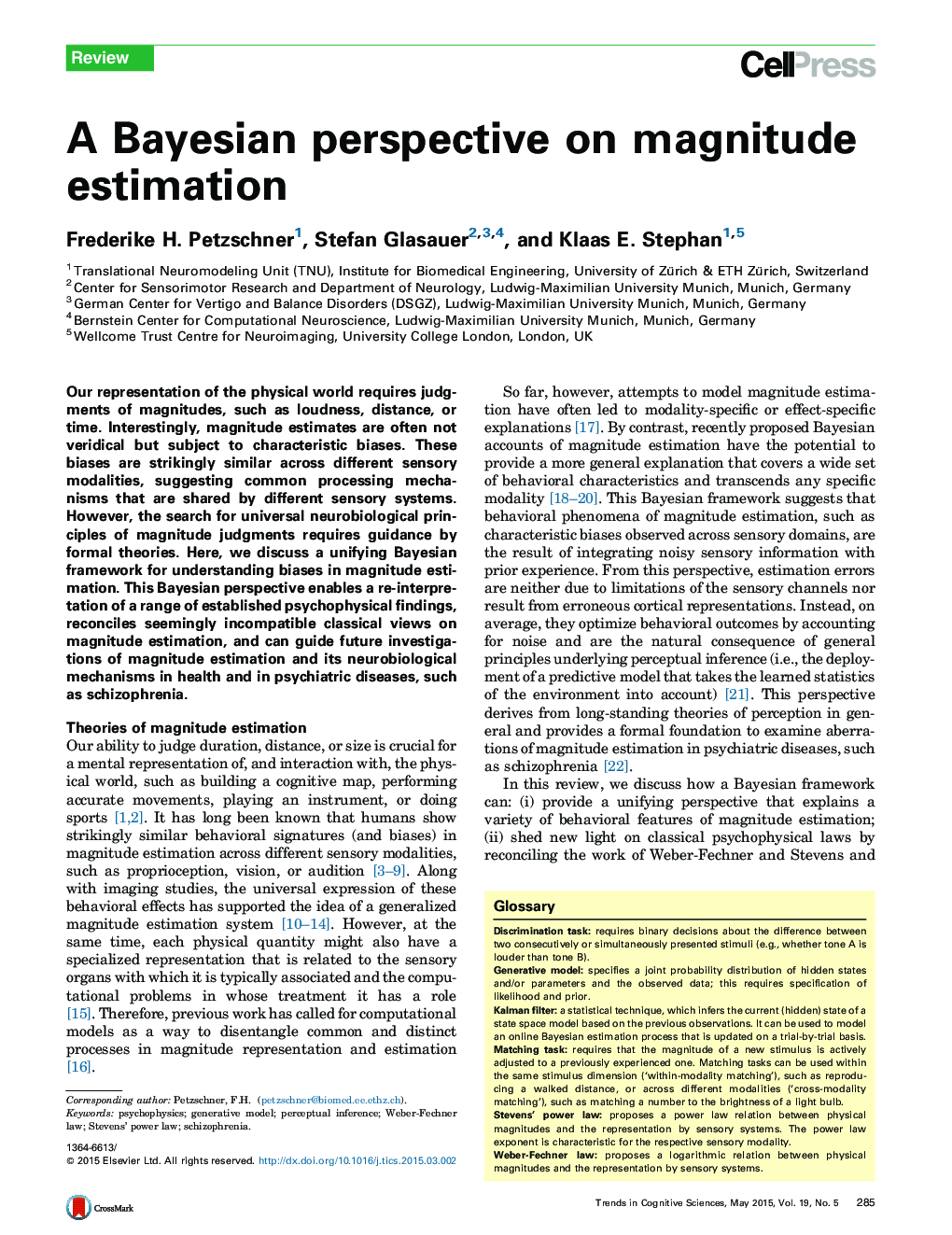| Article ID | Journal | Published Year | Pages | File Type |
|---|---|---|---|---|
| 141414 | Trends in Cognitive Sciences | 2015 | 9 Pages |
•A generic Bayesian framework explains regression, range, and sequential effects.•Weber-Fechner law and Stevens’ power law can be linked via Bayes’ Rule.•Stevens’ power law exponent can be reinterpreted as weighting of prior knowledge.•We link Bayesian explanations of magnitude estimation to theories of schizophrenia.
Our representation of the physical world requires judgments of magnitudes, such as loudness, distance, or time. Interestingly, magnitude estimates are often not veridical but subject to characteristic biases. These biases are strikingly similar across different sensory modalities, suggesting common processing mechanisms that are shared by different sensory systems. However, the search for universal neurobiological principles of magnitude judgments requires guidance by formal theories. Here, we discuss a unifying Bayesian framework for understanding biases in magnitude estimation. This Bayesian perspective enables a re-interpretation of a range of established psychophysical findings, reconciles seemingly incompatible classical views on magnitude estimation, and can guide future investigations of magnitude estimation and its neurobiological mechanisms in health and in psychiatric diseases, such as schizophrenia.
